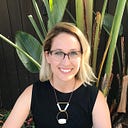Member-only story
Why My OCD Went Undiagnosed for 25 Years
Up to 25% of people experience obsessions and compulsions, but most don’t qualify for an OCD diagnosis. Researchers say that needs to change.
 In early 2012, my mental health eroded. I was going through a break up, had a cancer scare, and was unexpectedly laid off from a job I loved. The resulting depression wasn’t a surprise (I’d been on an antidepressant off and on for most of my adult life), but the skin picking was. Suddenly I had an unavoidable urge to scratch and pinch the center of my neck where it meets my collarbone.
In early 2012, my mental health eroded. I was going through a break up, had a cancer scare, and was unexpectedly laid off from a job I loved. The resulting depression wasn’t a surprise (I’d been on an antidepressant off and on for most of my adult life), but the skin picking was. Suddenly I had an unavoidable urge to scratch and pinch the center of my neck where it meets my collarbone.
Even after the depression subsided, I kept at it. So much so that three years later, a colleague asked what had happened to my neck. Embarrassed, I made a joke about it being from stress and then quickly changed the subject. But the interaction cemented what I already suspected: This behavior was not normal.
Worse, the skin picking wasn’t my only “tic;” it was just the newest and most obvious. I also air-typed random words — moving my fingers as if using a keyboard — and had to scratch the exact center of my palms, sternum, and belly button until they felt just right multiple times a day, every day. As far back as middle school, I can remember needing to repeatedly check that my alarm clock was set correctly. I…

